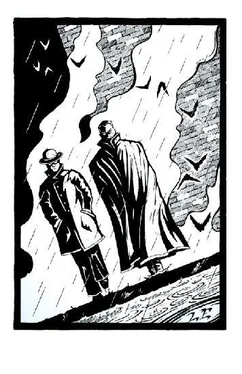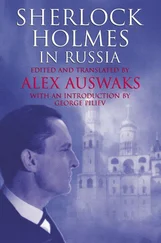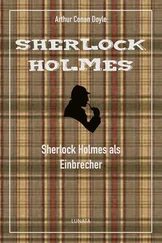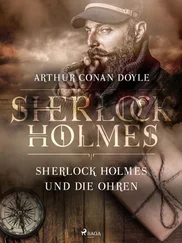“Now. Look at her.”
Poe took my hand and wrapped my fingers round a candlestick. It lit my way to the coffin, where the prone, lifeless husk that had once been so vibrant shimmered in its amber glow.
“Géricault, when he was painting his Raft of the Medusa, locked himself away with no company but dead bodies and even shaved his hair off to eliminate completely his need for contact with the outside world. All so that he could concentrate completely on the work at hand.”
I wondered why he was unrolling a cloth bag of surgical equipment — scalpel, forceps, scissors — but my query was soon answered.
“We are going to stay here, like Géricault, for however many hours it takes until your tears run dry. Then we will be done.” He lifted the cloth cover from a microscope on a desk. “You shall grow to know her as only God knows her. And then your wisdom will have outgrown your pain, and you will be free.” He walked over to me and placed an object in my hand.
It was a magnifying glass.
Dawn light began to outline the shutters as the screws were secured once more round the rim of the coffin lid. Poe rolled down his sleeves, buttoned his cuffs, and sent Le Bon with a message for the unscrupulous attendants from the morgue to come and remove the body.
“We shall say no prayers for her,” he said. “She goes to the ground and becomes dirt, as we all shall.”
He opened the windows.
The air became fresh and clean. Slowly the noises of ordinary life and work permeated from the cobbled bustle of the street. A gentle bathing of the everyday was welcome after a long and suffocating night of cigar fog and candle wax. By sunlight, the apartment in the rue de la Femme-sans-Tete was no longer a prison, no more a threat, a labyrinth with some Minotaur, part god, part monster, at its centre.
“I am not, nor have I ever been, healthy. ” He pinched my nostrils and drew the razor carefully down the cleft between my nose and mouth. A gobbet of soap hit the water in the bowl. “For my sins, a sedentary existence and the habitual use of alcohol and opiates is now written upon every organ in my body. At sixty-five I am heavy and weary, rheumatic and vulnerable to colds. My stomach is a harsh critic. I take quinine, digitalis and belladonna: one loses track of what produces the symptoms and what treats them. Truth is, I cannot know how many summers I shall endure…” He did not look into my eyes, focusing only on brushing more soap into my bristles. “Having no biological offspring, I have long harboured the desire to pass on what I have learnt of the science of ratiocination to someone else in this world before I take to dust. I have sought a pupil. A young adept of sorts. Foolish perhaps. Vanity, certainly…”
“That was the purpose of your test.”
“You found me, Holmes, and in so doing, I found you. Even though the clues were abundant, you were the first to show the propensity to solve such puzzles. Perhaps it is arrogance — that has always been my fatal flaw — but I do believe there may be some merit in my methods. I know the young despise the old, quite rightly and vive la revolution! — but…”
I was stricken with incredulity as I gathered the nature of his proposition.
“ You would teach me ?”
“There is a price, of course.” He wiped the straight razor in a cloth, both sides. “The price is your heart. Your tell tale heart…. The tale it tells is always a lie, and always leads to pain.” His sad eyes turned to mine. “Is it a cost you are prepared to pay, Sherlock?”
I took the cloth from his hands and wiped the residue of soap off my face as he waited for my answer.
We played four hundred games of chess, and a thousand games of cards. He taught me every intricacy of luck and chance, and every statistic that disproves every superstition. He dissected every belief like a pinned-out frog, occasionally making it kick for demonstration purposes, then revealing how the effect was achieved. He knew the machineries of life and mind and held them in his head like railway timetables. He revealed to me the foolishness of crowds and the absurdities of love, the fallacies of poor thinking, and the whirring cogs of the criminal mind. My old education was over and my real education begun: my training to be the outsider, observing life but not being in its thrall.
We argued over Hegel’s Logik, observed by the beady eye of a parrot named Griswold. We pored over Giovanni Battista Morgagni, and Taylor’s seminal work on pathology and toxicology, the first in the English language.
We read by lamp light. We slept on the floor or in our chairs but more often talked through the night.
When we were busy, and the doors bolted so we would not be disturbed, food and drink was lowered on a rope through a trap door from upstairs by the loyal servant Le Bon.
I was made to memorize a hundred imprints of soles of shoes. And a hundred types of house brick. Coins. Coral. Types of dentition. Birds’ eggs. Navigational equipment. Moths.
Blindfolded, I learned how to identify cigarette brands by smell alone.
The nature of breeds of dog — not to mention their owners.
He would show me a hundred Daguerrotypes and direct me to deduce the maladies from the patients’ photographs alone. And more. More, more , he taunted me. What more do you see?
Hour after hour, day after day, the room became clearer, as if a veil were lifted. As if my eyes had been put through a pencil sharpener. As if the world, muddy and intangible, were slowly being made clean and whole.
Habitually we would visit the aforementioned Ménagerie, and always pay a special pilgrimage to the old Orangutan named — I remember it clearly — Bobo.
Sometimes, after supper, as we walked beside the Seine, Poe took my arm. He liked a stroll, but sometimes his vanity meant he left his walking cane at home. He would tell me not to nag him when I reminded him of the fact. Often we sat on a certain bench and gazed at the Moon reflected on the water.
Watson spoke in derogatory fashion of my lack of knowledge in the field of astronomy. The truth is, I know not too little, but too much.
Poe taught me to listen to the music of the spheres.
Giordano Bruno said there is no absolute up or down, as Aristotle taught; no absolute position in space; but the position of a body is relative to that of other bodies. Everywhere there is incessant relative change in position throughout the universe, and the observer is always at the centre of things.
The observer. The detective.
I spent three years with Poe before he died and he taught me — not “all I know” (such a claim would be absurd) — but how to know. He was no less than a father to me, and the only thing he ever asked in return is that I keep his secret from the world.
We were sometimes seen around Paris: C. Auguste Dupin, with his white hair, black cape and yellow sunglasses, and his young English assistant.
Some mysteries were solved.
The affair of the so-called “phantom” of the Paris Opera. The case of the horla and its tragically afflicted seer. The “crying spider” of Odilon Redon.
We applied arithmetic to decadence and catacombs.
I never resumed my studies at Cambridge. My university was that of Poe: of detection, and of life.
As he became frail I cared for him in that and another apartment, smaller, but with a view of the Bois du Boulogne.
He observed life from the window. We tested each other in deducing the characteristics of walkers on a Sunday afternoon. He’d bemoan my pipe tobacco. I’d in return call him a pious ex-drunk.
When his eyesight went, I read to him aloud. I remember all too well his reaction to Notre Dame de Paris by Victor Hugo. The tragic fate of Quasimodo made him grimace with emotion. I thought he had been moved by the fates of the hunchback and Esmeralda, but he quickly retorted it would have been better in verse … and shorter. Though he muttered that it was obviously influenced by his own Hop Frog — and most inferior to it.
Читать дальше












